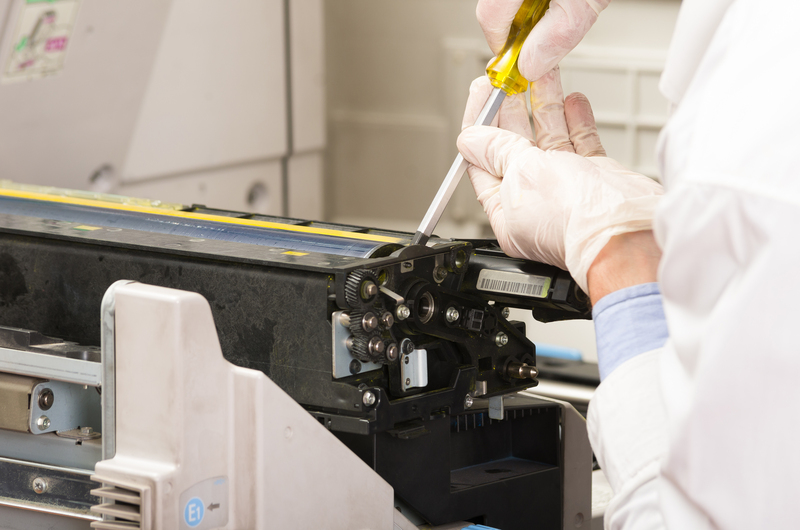Inspiring the Next Generation: Teaching Kids About Recycling
Recycling is more than just an environmental buzzword--it's a vital practice that protects our planet and ensures a cleaner, healthier world for future generations. Inspiring kids to recycle is essential, as they are not only today's learners but tomorrow's leaders. By teaching children about recycling, we can cultivate responsible habits that last a lifetime. This comprehensive guide explores effective ways for teaching kids about recycling, fosters curiosity, and motivates families and educators to make a difference--one recycled item at a time.
Why Is Recycling Education Important for Kids?
Children are naturally curious and eager to learn about the world around them. By introducing recycling concepts at an early age, we empower them to understand their impact on the environment and inspire positive change within their communities. Recycling education for children teaches them the importance of sustainability, resource conservation, and environmental responsibility.
Early Environmental Awareness
- Builds lasting eco-friendly habits.
- Encourages thoughtful consumption and waste reduction.
- Creates environmentally-conscious future adults.
By understanding the principles of recycling, children develop a sense of stewardship that can influence their families, friends, and entire neighborhoods.

How to Teach Kids About Recycling: Practical Strategies
When it comes to recycling education for kids, it's crucial to make learning fun, accessible, and relevant. Children respond best to engaging activities and hands-on experiences. Here are several effective strategies for teaching children about recycling in schools, at home, or within communities:
1. Lead by Example
Kids learn by watching the adults around them. Practicing recycling at home--sorting materials, reducing waste, and choosing reusable items--shows children how important recycling is in daily life.
- Assign kids "Recycling Helpers" roles in the house.
- Explain your choices while recycling--why plastics go in one bin and paper in another.
- Show the impact by tracking how much waste your family diverts from landfills each week.
2. Start with the Basics: What, Why, and How
Kids are more likely to embrace recycling when they understand what it is, why it matters, and how to do it.
- _What Can Be Recycled?_ Use clear examples like paper, cardboard, glass bottles, and certain plastics.
- _Why Should We Recycle?_ Discuss landfill space, pollution reduction, and saving energy and resources.
- _How to Recycle Properly?_ Demonstrate how to clean and sort materials, and explain local recycling guidelines.
3. Organize Fun Recycling Projects & Activities
Hands-on projects turn recycling into an interactive learning experience:
- Crafts with Recyclable Materials: Create art or useful items from bottles, cardboard, or cans.
- Recycling Relay Races: Set up a sorting challenge and let kids compete to see who can sort items correctly and fastest.
- Upcycling Competitions: Encourage kids to invent new uses for old materials.
These activities not only reinforce kids recycling habits but also tap into their creativity and problem-solving skills.
4. Use Storytelling and Educational Resources
Books, documentaries, and interactive online games can make the subject of recycling exciting and accessible. Some recommended titles and resources include:
- "The Adventures of a Plastic Bottle: A Story About Recycling" by Alison Inches
- "Why Should I Recycle?" by Jen Green
- Online Recycling Games (e.g., National Geographic Kids, EPA's Planet Protectors)
5. Take Field Trips & Community Action
Show children recycling in action:
- Visit a local recycling center or landfill.
- Participate in neighborhood clean-up events.
- Join or start a recycling club at school.
Seeing real-world results of recycling helps children grasp its importance and inspires them to act.
Overcoming Challenges in Recycling Education
While teaching about recycling brings many rewards, obstacles often arise. It is common to hear:
- Confusion about what can and cannot be recycled
- Inconsistencies in recycling programs
- Lack of motivation among children and adults
Addressing Recycling Myths and Misunderstandings
Myths can undermine the benefits of recycling. Tackle these issues by sharing facts, debunking false beliefs, and showing the real results of proper recycling.
- Myth: "Everything with the recycling symbol can go in the bin."
Fact: Only items accepted by local facilities should be recycled. - Myth: "Recycling doesn't really make a difference."
Fact: Recycling saves energy, conserves natural resources, and reduces pollution. - Myth: "It's too much work."
Fact: With proper systems, recycling quickly becomes a simple habit.
Making Recycling a Fun Family Project
Transforming recycling into a shared family responsibility can overcome resistance and help kids stay enthusiastic. Try:
- Reward systems for consistent recycling at home
- Family recycling challenges and monthly goals
- Exploring upcycling DIY projects together
A positive attitude about recycling can be contagious!
Integrating Recycling into the School Curriculum
Schools play an integral role in developing recycling habits in kids. If you're an educator or administrator, consider integrating recycling lessons across various subjects--science, art, math, and social studies. Here's how:
Recycling in Science Classes
- Study the lifecycle of materials: From resource extraction to manufacturing, disposal, and recycling.
- Explore environmental pollution: Use experiments to observe the decomposition rates of various materials.
Cross-Subject Projects
- Math: Calculate household or classroom waste reduction over time.
- Art: Use recyclables to create sculptures or collages.
- Social Studies: Discuss recycling practices in different cultures and countries.
School-Wide Recycling Initiatives
- Organize regular recycling drives
- Set up clearly labeled recycling bins in classrooms and cafeterias
- Recognize and reward classrooms or students for creative recycling projects
The Role of Technology & Innovation in Inspiring Kids
Modern technology offers exciting ways to engage kids in recycling education:
- Interactive Recycling Apps can help children learn how to sort items with quizzes and games.
- Augmented Reality (AR) Experiences bring virtual recycling centers into the classroom, letting students explore the journey of recycled products.
- Animated Videos show recycling processes in an enjoyable and memorable way.
Using digital resources not only modernizes children's recycling education but can also reach kids who are already immersed in technology.
Benefits of Teaching Kids About Recycling
Why is teaching kids about recycling so critical? Here are some of the most impactful benefits:
- Long-lasting Environmental Stewardship: Early education leads to continued conservation behaviors and environmental activism through adulthood.
- Waste Reduction: Kids who recycle help divert waste from oceans and landfills, directly safeguarding nature.
- Sustainable Innovation: Today's eco-minded children will become tomorrow's inventors, entrepreneurs, and leaders in the green economy.
- Empowerment and Global Citizenship: Recycling teaches kids that small actions have big impacts, inspiring them to take on more complex environmental challenges.
Frequently Asked Questions About Recycling for Kids
What materials are safe for kids to recycle?
Absolutely! Under adult supervision, children can handle paper, cardboard, rinsed plastic bottles, clean cans, and glass jars (with care). Avoid hazardous waste, sharp objects, and electronics unless guided by professionals.
How can parents and teachers encourage a recycling mindset at home and in the classroom?
- Make recycling visible. Place bins in accessible areas with easy-to-understand labels and pictures for young learners.
- Share recycling stories or news. Celebrate the positive impact of recycling efforts within your community or school.
- Lead hands-on activities. Kids are more likely to remember what they do themselves!
How can I make learning about recycling exciting for my kids?
Keep things interactive! Organize scavenger hunts for recyclable materials, watch fun recycling videos together, or turn waste-sorting into a family game.
How to Get Involved: Local & Global Opportunities
There are countless ways families and schools can promote recycling among kids outside the home. Look for:
- Environmental volunteer groups that welcome children and families
- Local government and community center programs focusing on youth and recycling
- Partnerships with eco-friendly businesses or organizations
- Online campaigns and challenges with global peer participation
Exposure to larger environmental initiatives teaches children they are part of a global movement--empowering them to be citizens of the world.

Conclusion: Empowering Kids to Shape a Greener Future
The journey to a sustainable planet starts with education. By inspiring kids to recycle from an early age, we nurture responsibility, resourcefulness, and creativity. Each lesson learned and each action taken--whether it's sorting cans, repurposing materials, or taking part in a school project--plants a seed for a greener tomorrow.
With practical strategies, creative approaches, and a spirit of collaboration, we can confidently inspire the next generation to lead the way in recycling and environmental stewardship. Every child educated today is an advocate for a sustainable world tomorrow.
So, start now--teach, model, and encourage kids to recycle in your home, school, and community. The positive impact will echo far into the future.
Additional Resources
- EPA: Recycle City - An interactive website for kids to explore recycling in their city.
- National Geographic Kids - Recycling - Engaging articles, quizzes and videos on environmental topics.
- World Wildlife Fund - Environmental Education Resources
By instilling the values and habits of recycling early on, we're not just saving resources--we're helping kids realize that every action makes a difference.